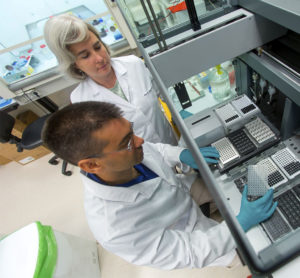 Those of us who lack specific scientific knowledge are usually resolute on the exisiting need in our society to invest in research, but we are also equally unaware of all the work that lies behind ressearch and on how it is accomplished.
Those of us who lack specific scientific knowledge are usually resolute on the exisiting need in our society to invest in research, but we are also equally unaware of all the work that lies behind ressearch and on how it is accomplished.
When medical research is already well advanced, the last step is to know how the body will react to these possible new treatments: how does the disease evolve or the possible side effects that appear when a treatment is administered? This is what is known as a clinical trial, a term that is familiar to all of us, especially nowadays, after the pandemic.
How does a clinical trial work?
Clinical trials are designed by researchers, medical experts in the diagnosis and treatment of patients with a specific disease, and involve a multitude range of organisations and institutions (health authorities, ethics committees, etc.).
When these trials are performed at the same time in more than one centre, they are called multicentre and, if the centres are in different countries, they are considered international. This type of “international multicentre trials” are essential for those hospitals that are unable to recruit an ample number of patients for a specific investigation: something which tends to be quite frequent, for example, when said research involves children’s diseases.
These trials are complex and expensive, since, as many centres and patients are involved, effective communication, agile logistics (required in order to transport medicines and materials), staff training and proper data compilation are needed.
A crucial challenge to achieve medical advances
International multicentre trials involve challenging and demanding tasks related to study planning, execution, analysis, and follow-up. Notwithstanding, they also have many advantages, such as swift recruitment processes and, above all, the development of new treatments for patients who require new therapeutic options.
During 2021, FMLC backed the SEHOP Foundation (Spanish Society of Pediatric Hematology and Oncology) with the project “ECLIM SEHOP Platform for the implementation and development of international multicentre clinical trials in childhood cancer in Spain”.
Its aim has been to help the proper development of academic clinical trials (treatment protocols), so that children and youngsters with acute lymphoblastic leukemia can receive the treatments recommended by the international or national level in Spain. It also seeks for these children to benefit from the treatment advances regarding this disease, within the existing legal framework and following the most apt safety conditions. A leap towards improving the health and quality of life of these youngsters.
Click to learn more about our research projects



